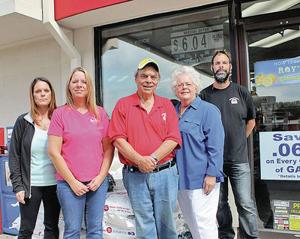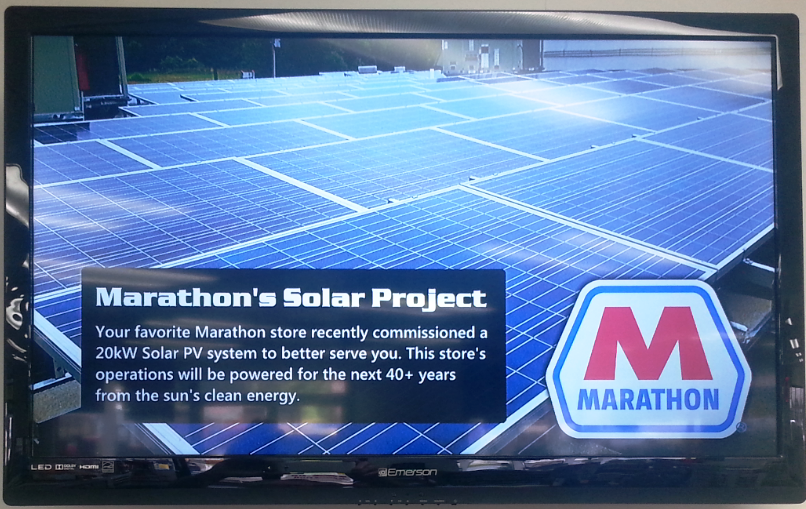Q&A: Barry Goldwater, Jr.’s fight for solar power
Former Congressman Barry Goldwater, Jr.’s interest in renewable energy dates back to the mid-1970s when he was the ranking Republican on a subcommittee tasked with advancing energy research and promoting alternatives during the oil embargo.
At the time, “I didn’t even know how a light bulb worked,” Goldwater said in an interview last week with Midwest Energy News.
Over time, he became a champion of energy independence and utility customers’ rights to generate their own electricity.
As chairman of Tell Utilities Solar won’t be Killed (TUSK), Goldwater and his associates are pushing for net metering solar policies that are favorable to utility customers in 17 states across the country. In the Midwest, the group claims to be active in Michigan, Wisconsin, Indiana and Kansas.
Goldwater says “you could almost call it a conspiracy” the way utilities are trying to recoup costs from customers who generate their own solar power, avoiding what utilities claim are subsidies by all other ratepayers to maintain the grid.
For example, a proposal in Michigan would eliminate net metering and replace it with a system that forces solar customers to buy electricity from the utility at retail rates, and be reimbursed at much lower wholesale prices. Utilities are pushing similar policies around the country.
But increasingly, Republicans and other conservatives are joining environmentalists and clean energy advocates in defending solar-friendly policies.
Goldwater sees a split within the Republican Party among libertarian-leaning lawmakers touting the benefits of solar versus those who support an outdated, monopoly utility model.
“The future is here and Republicans need to get in front and get their feet out of the dirt,” he says.
Midwest Energy News: When and why did you take up the issue of net metering and solar energy?
Goldwater: I was in Congress from 1969 to 1984 and was there during the oil embargo by the Middle East in ’74. Jimmy Carter was president and he stood up and declared war [promoting] energy independence and made it a national policy to wean ourselves from [fossil] fuel onto alternatives. I became a quick study on energy and especially alternatives, and I’ve been a student of the issue since 1975. I don’t claim to be an expert, but I appreciate the technology, which is replacing coal, oil and gas. I think it’s a worthy battle. Technology is kind of replacing the old order. There was a place for utilities and monopolies when they were first created, but the time has come for a change. Utilities are still working off an old business plan.
Is there anything unique in different regions of the country when it comes to the fight over net metering, or is this largely a uniform issue?
You could almost call it a conspiracy. Utilities got together and said they’re going to gang up on rooftop solar. Their attack is pretty much the same with fees and taxes, changes in regulations. It’s the same fight all across the country.
The group Citizens for Michigan’s Energy Future and legislators in Michigan who back the latest Senate proposal criticize you and others as out-of-state special interest groups without a vested interest in what happens here. What’s your response to that?
Energy is a national issue. It is influenced by the federal government. It is state-regulated in most cases, but it is a national issue. What happens in Arizona impacts what happens in Michigan and vice versa. You may call me an outsider, but I have an interest in what happens in Michigan because it has some influence on what will happen in Arizona. We’re all in this together, we’re not separate.
Proponents of the Michigan net metering proposal say it is about creating fairness among all ratepayers and ending subsidies from one group to another. What’s your response?
That is their classic argument. It doesn’t hold water. I spent a lot of money treating my house [with energy efficiency]. As a result, my electric bill went down. Consequently, those people who don’t do the same are subsidizing my electric bill. They are making the same claim for solar energy. It’s a phony issue and doesn’t hold water.
Do you see a legitimate split within the Republican Party on the issue of net metering and self-generating solar?
I think Republicans have got to come to their senses and realize that they can’t dig their heels in on an issue like the environment. Conservatives, liberals all want a clean earth and a clean environment. They take different approaches — conservatives would like to rely on the free market approach. Liberals want to dictate and influence that direction. I will not take a back seat to anybody for the air I breathe or the earth I live on. That is one of my rationales for rooftop solar.
I want to be a champion of the future, not a detriment.
The other problem you have with Republicans is they tend to be against subsidies, or government picking winners and losers. But there are big subsidies for oil and gas and coal. Republicans tend to be against that just in principle. I do understand that we’ve also used subsidies to encourage social behavior throughout the history of this country, such as giving preference to people who own electric cars.
When I was in Congress in the ‘70s, we created all kinds of incentives to encourage the utilization of renewable energy — subsidies, tax treatment, guaranteed purchases. Most of those have gone away but it did encourage the industry to sprout up. At some point it’s got to stand on its own two feet. It’s coming soon, but it is not now.
Do you envision so-called “green tea” lawmakers joining with Democrats on this issue or with partnering with other Republicans?
I think Republicans ought to take a step back and ask themselves: What’s good for Michigan? What’s good for the taxpayer? The answer to that is that they should adopt policies that reduce rates and increase choice and independence and not continue an obsolete monopoly utility system.
We need to get ahead of the curve, we need to be out in front. That’s what Republicans should be doing. If you look across America and around the world, all the research and development that’s gone into alternative energy is amazing. I want to be a champion of the future, not a detriment. I want to get away from the old and adopt the new. The future is here and Republicans need to get in front and get their feet out of the dirt.
On another point, because of this investment by the government, private sector and universities, these energy sources are maturing to the point where a whole new industry is blossoming across the country. Hundreds of thousands of jobs are being created. Republicans ought to count their blessings and support it.






 Rep. Gary Glenn (R-Midland)
Rep. Gary Glenn (R-Midland)


